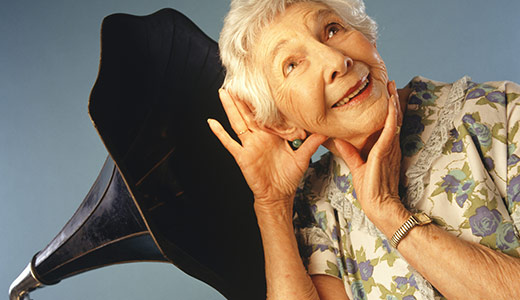It’s sort of a given, I think, that most of us quit listening to new music at some point. After all, what do your parents listen to? Exactly.
I’m a big Beach Boys and Neil Diamond fan (among many other bands), for instance, because that’s what my dad was listening to back in 1974. And, honestly, that’s about where he checked out, musically speaking.
And then there are my kids. I’m sure as they get older, they’ll be whining, “Come on, Dad! Do we have to listen to that junk from the ’80s?” At which point, I’ll respond, “Junk! JUNK!” (Pause for venting steam out my ears.) “You kids today don’t know nuttin’!” I’ll holler in my best grumpy old man voice. And then I’ll passionately launch into a litany of the objective reasons why it’s all gone downhill since then. (Because it has. No, really, it has.)
So when does the average person actually “check out” of current popular music offerings? According to a detailed cross-referencing of Spotify users, their age and their music choices conducted by tech blogger Ajay Kalia (skynetandebert.com), the answer is about age 33.
In his post, “Music was better back then: When do we stop keeping up with popular music?” Kalia says the data from his online streaming research indicates that teens are the demographic most focused on the most popular music of the day. There’s not much differentiation between young men and women’s tastes in their teen years, he says, but men’s engagement with mainstream popular music tends to fall off faster once they reach their 20s.
In addition to simply getting older, the other major factor influencing people’s listening habits is becoming parents. Once you have kids, you’re much less likely to listen to popular music. Kalia says of the statistical influence of having children, “Users at every age with kids listen to smaller amounts of popular music than the average listener. Put another way, becoming a parent has an equivalent impact on your ‘music relevancy’ as aging about 4 years.”
And at a certain point in 30s or so, he says, many of us tend to have a renaissance with the music of our youth, further blunting the likelihood of connecting with new tunes.
There may very well be individual variations and deviations from the overarching trends in Kalia’s Big Data-style conclusions here. In my case, for instance, I probably aged out well before I turned 33, in part because I found the shifting music trends of the early ’90s (cough, grunge, cough) pretty unappealing. It’s not that I never listen to anything new; but in terms of the music that really elicits an emotional reaction in me, it’s the music of my youth.
Having said all that, I think what’s perhaps most important here is the reality that our teen years are so formative when it comes to our musical tastes. That season of life shapes our preferences in significant ways, which makes the stakes for the music we “bond” with during those years that much higher. Even if we drift off from our adolescent musical preferences, the research here shows we’re likely to come back to them later on.
And that makes discernment, in our own lives and in our children’s lives, all the more important when it comes to our musical predilections—because they may very well exercise influence on our lives for decades to come.






Recent Comments